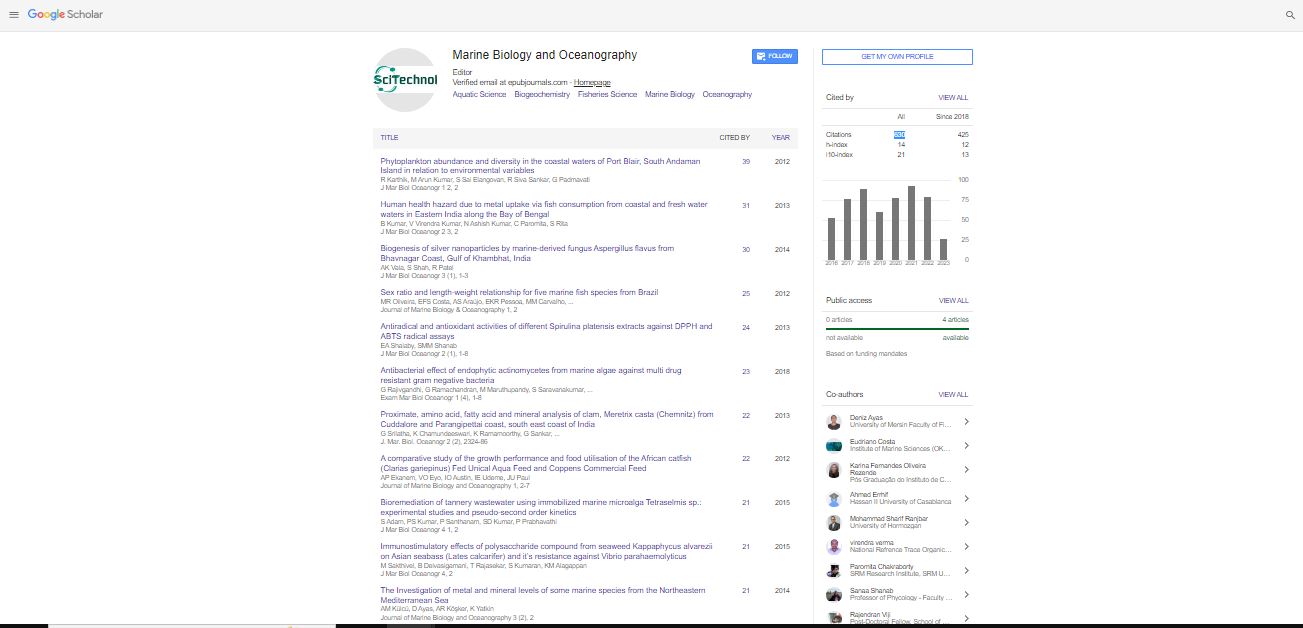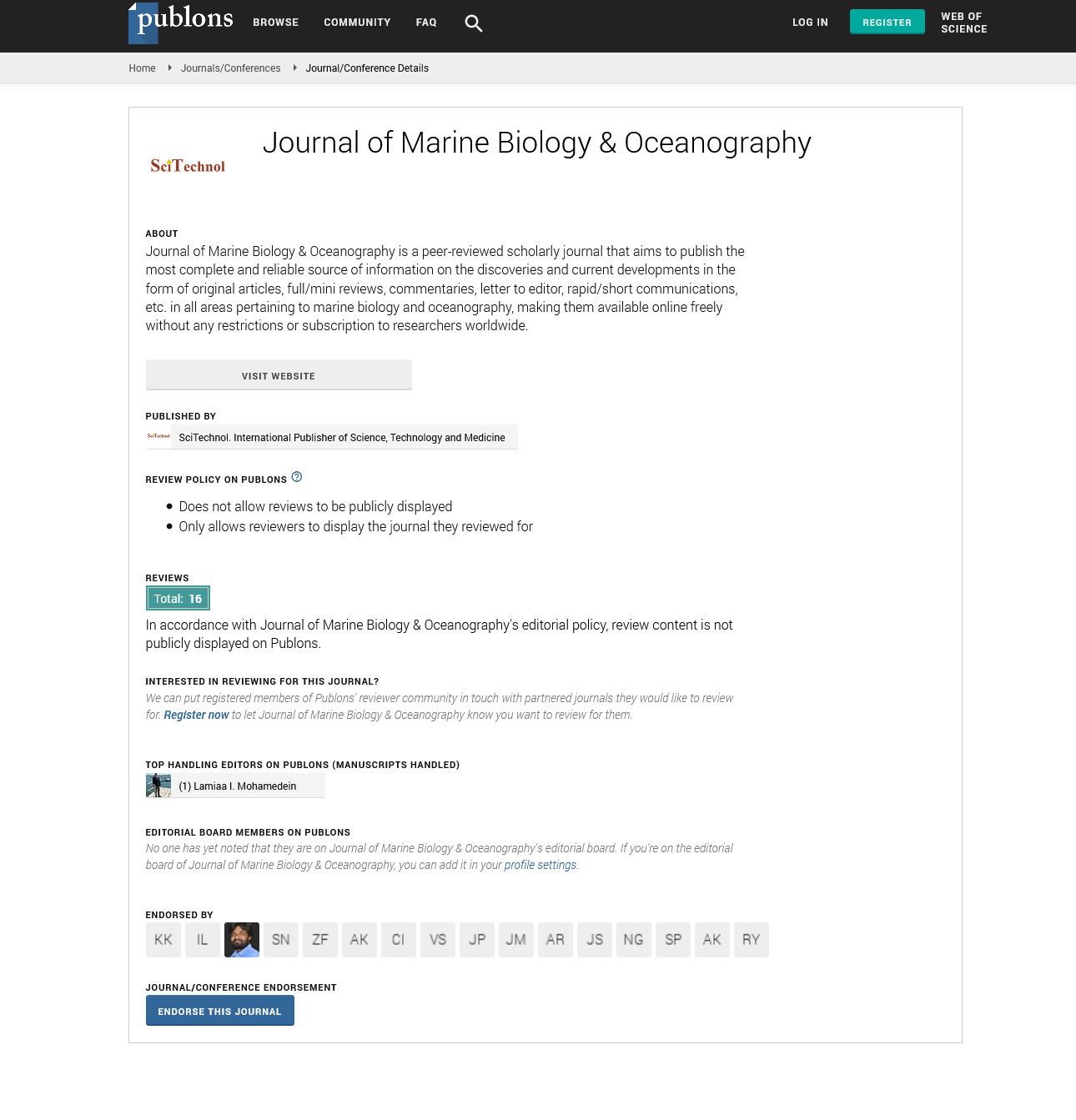Assessment of different flocculants on Haematococcus pluvialis harvesting and biochemical composition, astaxanthin production and reuse of the medium
Alfredo Olivera Galvez, Yllana F. Marinho, Thiago B. Cahu , Ana Patricia Silva de Oliveira , Thiago Henrique Napoleao, Ranilson de Souza Bezerra and Patricia M. Guedes Paiva
Federal Rural University of Pernambuco, Brazil
: J Mar Biol Oceanogr
Abstract
The objective of this study was to assess the effect of different flocculants on Haematococcus pluvialis harvesting and biochemical composition, astaxanthin production and reuse of the flocculated medium. To this end, it considered two phases of microalga growth: cysts and vegetative cells. The experimental design of both experiments was of factorial type, evaluating 5 different flocculants (factor 1) and 4 different concentrations (factor 2), with one control unit (without flocculant). The tests were performed in triplicate. The flocculants were: polyaluminium chloride (PA), ferric chloride (FC), sodium hydroxide (SH) saline extract of Moringa oleifera seed cake (MSE) and chitosan (CH) and the concentrations were 50, 100, 150 and 200 ppm. Flocculation efficiency, pH and astaxanthin production were analyzed after flocculant addition. For the vegetative phase after flocculation, the supernatant of flocculation with 100 ppm was used to investigate the reuse of the flocculated medium on the growth and biochemical composition of the microalga. Signiï¬Âcant differences (P < 0.05) among the flocculants and concentrations were observed for flocculation efficiency, pH and astaxanthin production for both microalga phases. For flocculation medium reuse, there were signiï¬Âcant differences (P < 0.05) for microalga growth and biochemical composition. Concluding, the most efficient flocculants for microalga biomass harvesting were PA, FC, MSE and CHI and the best astaxanthin production occurred when using MSE as flocculant. The reuse of these media did not compromise either the growth or the biochemical composition of H. pluvialis.
Biography
Alfredo Olivera Galvez is currently working as a professor at the Federal Rural University of Penambuco (UFRPE). He received the doctoral degree on biology of aquatic organisms from the Sao Paulo State University (UNESP) and completed his master’s degree on aquaculture from the Federal University of Santa Catarina (UFSC). He has authored several publications in various journals and books. His publications reflect his research interests in Bioremediation, aquaculture, seaweds and microalgae production. He is serving as a member or fellow in National Council for Scientiï¬Âc and Technological Development (CNPq – Brazil). alfredo_oliv@yahoo.com
 Spanish
Spanish  Chinese
Chinese  Russian
Russian  German
German  French
French  Japanese
Japanese  Portuguese
Portuguese  Hindi
Hindi 
